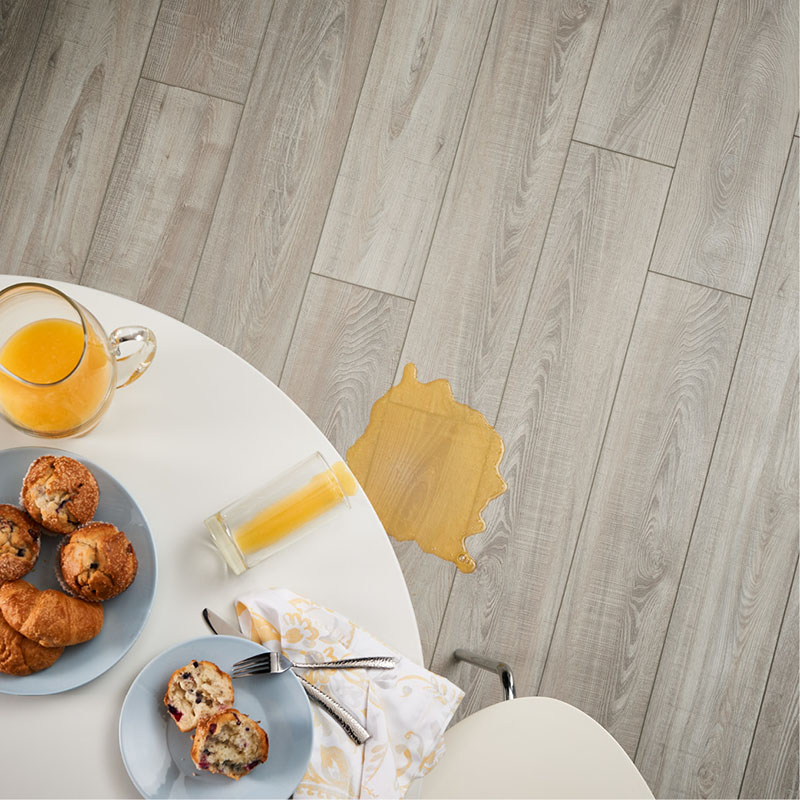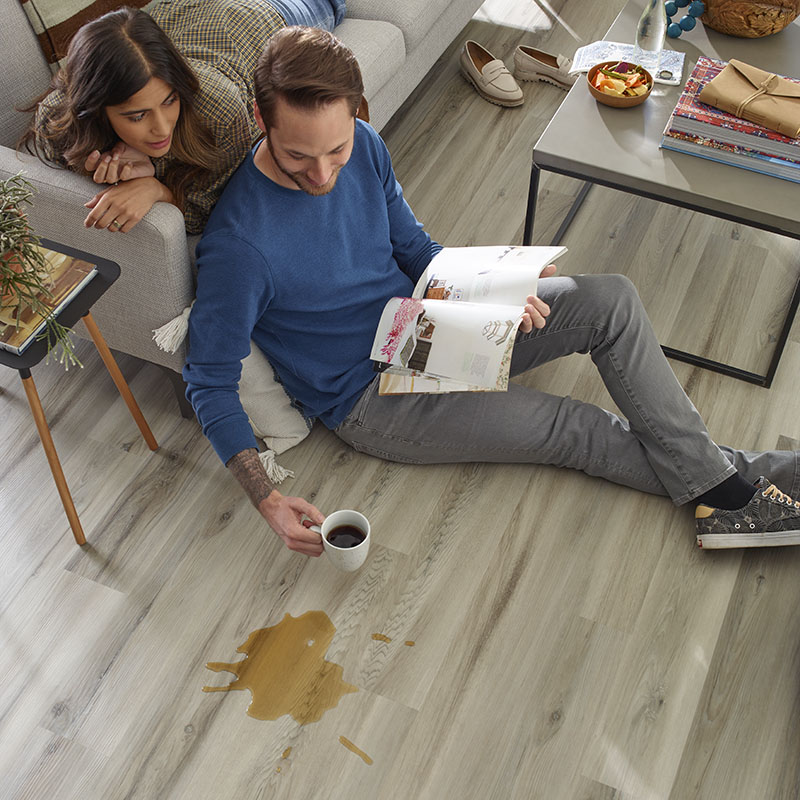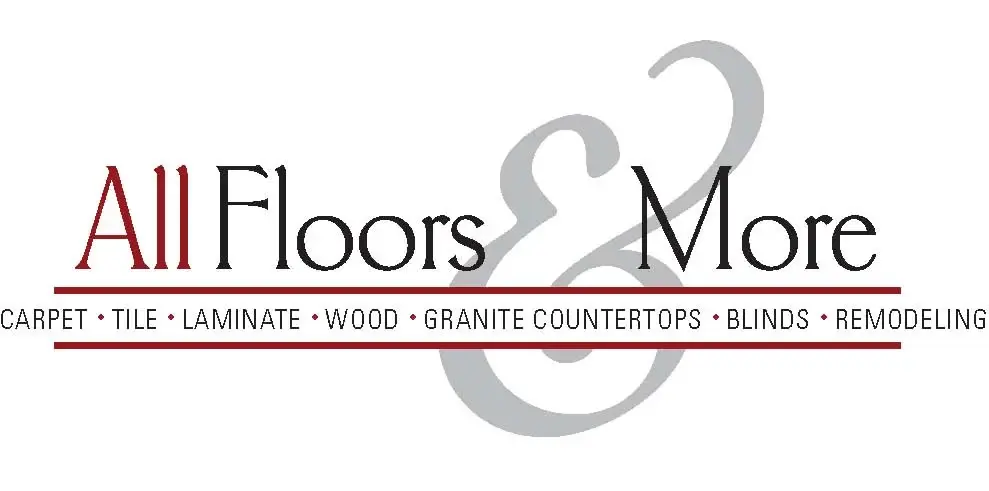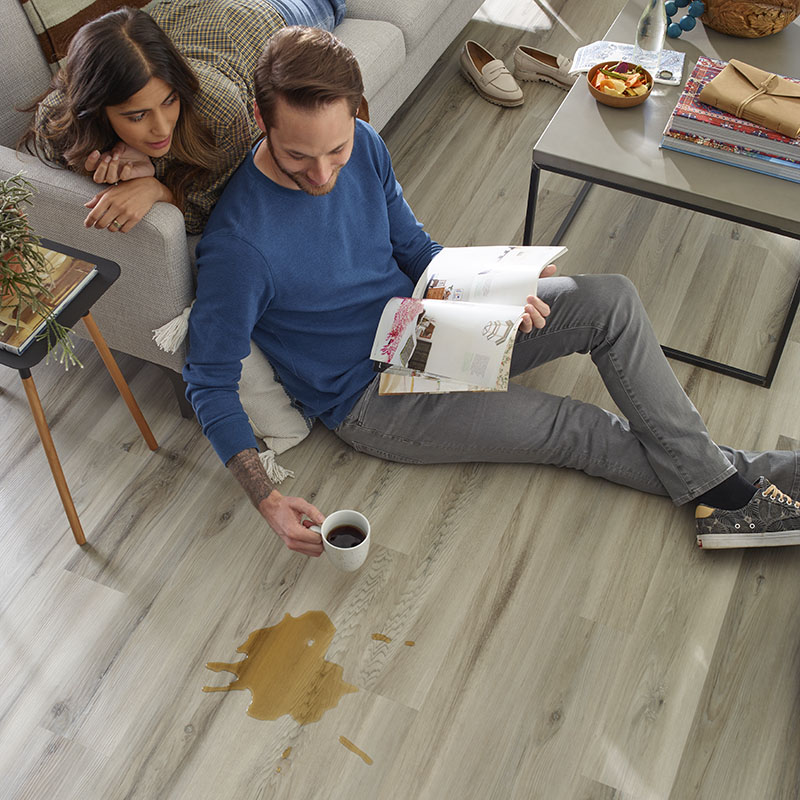As flooring technology advances, more and more options hit the market that are actually waterproof. These floors are not affected by dampness, moisture, or water, and as a result are suitable for use in all living areas, including kitchens, bathrooms, basements and other areas that could see varying levels of humidity. Which one should you choose? Read on to find out.

Tile or Stone
Ceramic and Porcelain tile, both made from clay that is fired, glazed and fired again, are waterproof once installed and properly grouted. The glazed surface of the tiles, whether they are matte or shiny, makes them impermeable to water. If you are in doubt, tile is easy to seal, or you can have a professional seal it for you. Be sure to select a grout that is also waterproof to prevent spills or water from penetrating the grout lines. This will maintain the integrity of your new floor, as well as prevent the grout from becoming stained. Tile is available in many options, including those that mimic wood, natural stone, or artisan painted tiles, making it easy to create the look that you want.
Most natural stone resists moisture, as long as it is sealed and grouted. If you like the look of stone, consider it as an option, knowing that it may require a bit more maintenance and care.

Luxury Vinyl
Vinyl is a broad term referring to synthetic flooring that will not break down when exposed to water, due to the fact that it is made entirely out of inorganic materials. Vinyl can be found in tile form, as luxury vinyl tile (LVT), and as planks, as luxury vinyl plank (LVP). Touted as a “chameleon” of sorts, luxury vinyl can mimic many types of flooring, such as wood, tile, or stone. Both LVT and LVP floors are assembled by attaching the individual pieces together using tongue and groove technology, to form a floating floor. While some require an additional underlayment, many brands have one already attached. Once installed, vinyl flooring forms one continuous and waterproof floor, suitable for use throughout your living space. It is easy to clean, low maintenance, and suits many busy lifestyles.

Waterproof Laminate
Laminate floors have come a long way and many of today’s options are waterproof. Similar in technology to vinyl tile or plank, the flooring pieces attach to each other to create one continuous floor, securely locking together to prevent spills and wetness from penetrating. The waterproof nature is further enhanced by a moisture resistant core and a protective top layer.
If you are ready to talk about all the waterproof flooring options, or if you need some in-person guidance, visit our helpful design staff at All Floors & More. We can review options that will fit your decor and budget and set you up with a professional installer that can get your waterproof floor installed efficiently.

